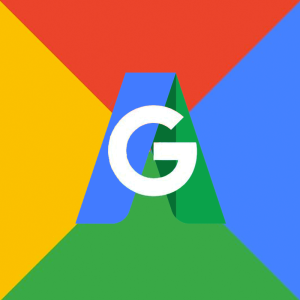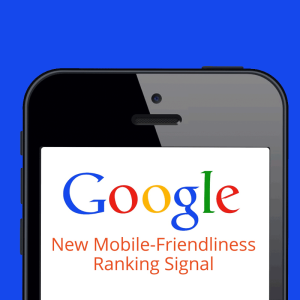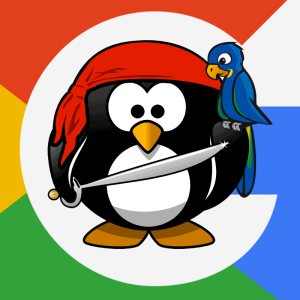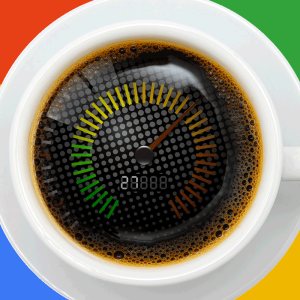
Adjust and adapt to maintain or improve
Being aware of the history of Google’s algorithm updates can help explain changes in organic search results rankings. With this knowledge, you can adjust your optimization strategies to adapt to the changes Google makes, in an effort to maintain or improve your organic page ranking.Better, cleaner, faster
From the beginning, Google’s goal has always been to deliver the most relevant and quality results to users. As Google's co-founder Larry Page puts it, “The perfect search engine would understand exactly what you mean and give back exactly what you want.” Right from the inception of Google as a search engine in 1998, however, spammy content and web link spam have been a widespread common occurrence which reached its peak in 2011. Although Google had been reindexing the whole web almost every month, to better combat spam they began to introduce major updates to their algorithm which delivered serious changes to the Search Engine Results Pages (SERP). With every major update introduced, parts of Google's code had been rewritten or replaced with better abstractions to make search criteria more robust, cleaner, and faster.How to avoid being penalized
Here is a summary of Google's algorithm updates, and more importantly, what you can do to avoid being penalized by them.What you need to know about Google Algorithm Updates
 AdWords Update
AdWords Update
February 2016. AdWords is a great solution for sites that rare unable to earn their way to the top of search results organically. Google made major changes to AdWords, removing right-column ads entirely and rolling out 4-ad top blocks on many commercial searches. While this was a paid search update, it had significant implications for click-through-rates for both paid and organic results, especially on competitive keywords. How to take advantage of the AdWords update:
- AdWords has 50% more ad text and an increased description to 80 characters.
- Can create more prominent headlines, a longer description, and a relevant display URL.
- Display ads are more responsive to mobile devices.
- Easier to create display ads.
- Can now set individual bid adjustments for each device type.
- Added local search ads on Google.com and in Google Maps.
 Doorway Page Penalty Update
Doorway Page Penalty Update
April 2015. Google launches new ranking adjustment targeting duplicate pages that already exist on the site for the purpose of capturing more search traffic. How to avoid being penalized for the Doorway Page update:
- Take down empty pages.
- Avoid hard-to-find pages designed only to drive traffic to your website.
- Avoid duplicate content.
- Avoid pages that are repetitive and duplicative — i.e. multiple pages with basically the same content focused on the same city targeting different keywords.
- Avoid multiple sites if possible v. having all of the content on a single site.
- Avoid content duplication across the (multiple) sites.
 Mobile Update
Mobile Update
April 2015. Google gives preference to websites that look good and function well on mobile devices. Sites that are not mobile-friendly will have their rankings penalized. The mobile update was in response to the growing number of mobile searches and mobile users. Want to see if your website is mobile-friendly? Type your URL in Google's Mobile Friendly Test. How to avoid being penalized for the Mobile update:
- Redesign your website for mobile.
- Make sure your site has a responsive mobile-friendly layout and is optimized for whatever device the searcher is using.
- Make sure that the videos on your site are compatible with mobile devices.
- Avoiding software not common on mobile devices, like Flash.
- Avoid using small font sizes so text is readable without zoom.
- Resize content to the screen to eliminate scrolling.
- Make sure touch buttons links far enough apart to be selected and tapped easily.
- Make sure your phone number and address are easy to find on every page.
 Pigeon Update
Pigeon Update
July 2014. Google Pigeon gives rank preference to local results in search queries, and boosts local directories. The algorithm uses distance and location cues to improve search results for Google Maps search & Google web search. Search results now target and display a much smaller radius. Thinking locally to take advantage of this and begin to include hyperlocal neighborhood indicators in your page content. Note: If your business is located in just one specific geographic area, you should expect to rank locally for that location, but less likely to rank for surrounding cities that are farther away from your actual location. How to avoid being penalized for the Pigeon update:
- Make sure that your site is properly optimized for local search.
- Make sure that your business address and industry display prominently on your website.
- Make sure that you make use of location-specific keywords.
- Make sure to build a solid business presence on leading local directories in your industry (Google My Business, Facebook, Yelp, TripAdvisor, Yellow Pages, etc.). Local directories are essential in helping to identify your online brand and serving your content in Google search results.
- Make sure to optimize and maintain accurate and complete listings in these accounts.
- Make sure that you have a large number of positive customer reviews on third-party review sites.
- Make sure to get better Google exposure with a Google My Business page (fill out proper category, Local area code, NAP consistency in all your business listings, City or state included into your website's title tags, Product/service keyword in business title).
 Hummingbird Update
Hummingbird Update
August 2013. The Hummingbird update is a core algorithm update that shifts Google's focus from just looking at the keyword to determining keyword analysis and intent. How to avoid being penalized for the Hummingbird update:
- Hummingbird is not penalty-based; it rewards sites that provides great answers to a searcher's intent.
- Focus on what your customers are looking for.
- Answer questions within your content for exactly what the user is looking for.
- Identify intent, needs and problems. Provide answers and solutions.
- Write conversational content around a theme or a concept instead of focusing on keywords.
- Focus more on meaningful long-tail keywords within the context of a paragraph.
- Focus on getting social media shares, comments and interactions for your content.
- Optimize every page. Make sure titletags, descriptions, and keywords are 100% relevant to that page.
 Payday Loan Update
Payday Loan Update
June 2013. Google’s Payday Loan algorithm targets cleaning up search results for traditionally “spammy queries", filtering out lower quality websites using a variety of spam techniques to boost their search rankings for heavily trafficked search keyword queries like payday loans, viagra, casinos and various pornographic terms. How to avoid being penalized for the Payday Loan update:
- Avoid terminology on your site that sounds spammy.
- Avoid terminology on your site that is unrelated to your business.
- Avoid thin content with little or no added value.
- Avoid link schemes and/or unnatural links to a site.
- Avoid spam and/or illegal activities.
- Avoid hidden text and/or keyword stuffing.
- Avoid cloaking and/or sneaky redirects.
 Phantom Update
Phantom Update
May 2013. Also known as “the quality update”, Google acknowledged a core algorithm change impacting "quality signals". This means, it will only affect low quality pages that have low rankings, not the entire domain. The update has less to do with the content on a site, and more to do with how a site functions (a lot of user-generated content) and earn money (a lot of ads). How to avoid being penalized for the Phantom update:
- Avoid ads above the fold and popups.
- Avoid self-starting videos.
- Avoid duplicate content, thin content, poor content.
- Avoid 404 status code errors.
- Avoid weak user signals (poorly designed site).
- Avoid too many comments.
 Pirate Update
Pirate Update
August 2012. Google targets sites with repeat copyright violations. How to avoid being penalized for the Pirate update:
- Do not steal or copy content from other websites.
- Get rid of all duplicate, unoriginal, plagiarized content and duplicate pages.
- Avoid content farms and poor quality content.
 Penguin Update
Penguin Update
May 2012. The Penguin update attempts to detect spammy or aggressive links that strive to manipulate search engine rankings and demotes websites engaged in it. Avoid this link penalty by regularly monitoring your backlinks and removing links that could potentially hurt your rankings. How to avoid being penalized for the Penguin update:
- Avoid buying or selling links.
- Avoid participating in link farms.
- Avoid low quality links pointing to your pages.
- Avoid having a large number of inbound links coming from irrelevant sites.
- Avoid links in your page footer, site wide links, and links with over-optimized anchor texts.
 Panda Update
Panda Update
February 2011. The Google Panda update is basically a filter designed to prevent websites with poor quality content, excessive ads, and poor overall design from ranking well in a Google search. Panda targets poor quality sites and/or pages with thin content, content farms, sites with high ad-to-content ratios, poor web design, and other quality issues. Google Panda is a site-wide penalty that scores your entire site. How to avoid being penalized for the Panda update:
- Avoid content from content farms.
- Avoid low quality content and pages.
- Avoid any form of content duplication; focus on publishing unique, helpful, rich content.
- Avoid using the same or similar content in more than one page on your site.
- Avoid content that does not add value, is not interesting, and does not solve a specific problem.
- Avoid irrelevant meta tags (title, the description, and keywords).
- Avoid keyword stuffing.
- Avoid over-optimizing your anchor texts.
- Avoid over-optimize your website.
 Caffeine Update
Caffeine Update
August 2010. A massive Google infrastructure change resulting in a 50% fresher index. Designed to boost Google's crawling speed, update their search index on a continuous basis, and provide a more accurate real-time search results. How to gain favor with the Caffeine update:
- Google shows more real time content in search results.
- Google gives more attention to websites with frequently updated content.
- Google gives more importance to relevant content.









